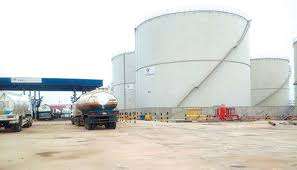Amid the Federal government’s plan to remove subsidy on Premium Motor Spirit, also known as petrol by February next year, it was reliably gathered that the cost of PMS imported into Nigeria from January to September this year surged by 55.56 per cent to N2.52 trillion from N1.62 trillion spent in the same period in 2020.
Oil marketers have begun plans to resume importation of the PMS as soon as the government deregulates the downstream sector of the petroleum sector in the first quarter of 2022.
Already, oil marketers have begun plans to resume importation of the PMS as soon as the government deregulates the downstream sector of the petroleum sector in the first quarter of 2022.
Nigeria relies wholly on imports to meet its fuel needs as its refineries have remained in a state of disrepair for many years despite several reported repairs. In the light of this the country spent N2.01tn on petrol imports in 2020, compared to N1.71tn in the previous year.
READ ALSO: Foreign Rice: Importers to Pay N300b Freight Rates to Nigeria
The data obtained from the National Bureau of Statistics showed that petrol topped the list of products imported into the country in the third quarter, accounting for 12.52 per cent of the total amount spent on imported products, up from 11.26 per cent in the previous quarter.
The subsidy, which the NNPC prefers to call ‘value shortfall’ or ‘under-recovery’, resurfaced in January this year as the government left the pump price of petrol unchanged at N162-N165 per litre despite the increase in global oil prices. The NNPC, which has been the sole importer of petrol into the country in recent years, has been bearing the subsidy cost since it resurfaced.
According to data collated from the monthly reports of NNPC, a total of 6.3 billion litres of petrol was supplied in the first four months of 2021. The
The corporation supplied a total of 6.3 billion litres of petrol in the first four months of 2021, according to data collated from its monthly reports.
In its latest monthly report, the corporation stated that it has continued to diligently monitor the daily stock of PMS to achieve smooth distribution of petroleum products and zero fuel queue across the nation.
Oil Marketers and experts attributed the surge in petrol imports to oil price rally, smuggling of petrol to neighbouring countries and naira devaluation.
It is worthy of note that the international oil benchmark, Brent crude, which was as low as $22 per barrel last year, rose to a high of $85.43 per barrel on October 22 this year.
In May, the Central Bank of Nigeria devalued the naira to N410.25 per dollar. The CBN had kept the official exchange rate at N379/$1 since August 2020, when the naira was devalued for the second time last year from 360 per dollar. It was first devalued to 360/$1 in March 2020 from 306/$1.
The Executive Secretary/Chief Executive Officer, Major Oil Marketers Association of Nigeria, Mr Clement Isong, said, “In 2020, we had COVID with all the lockdown, so I imagine that volume this year would be more than that of last year. The second point is that last year, the price of crude was very low; this year, it has been rather high. Last year, it went as low as $20 per barrel; this year, it has gone as high as $80.
“Finally, the exchange rate of the dollar to the naira was significantly lower than what it is this year. I have no doubt that smuggling has continued. Last year, the price of petrol came down in Nigeria, but it remained at N350, N360, N380 and N400 in the neighbouring countries.”
The National Operations Coordinator, Independent Petroleum Marketers Association of Nigeria, Michael Osatuyi, lamented that the inability of the country to produce petrol locally.
“We are 100 per cent import-dependent, but a country that imports 100 per cent is in a big problem,” he said, adding that the Dangote refinery would come to the country’s rescue when it comes on stream.
“Our products are smuggled to all the neighbouring countries because they are cheaper. If we don’t deregulate the downstream oil sector and crude oil price continues to go up, Nigeria’s petrol imports figure will double next year because,” he said.

